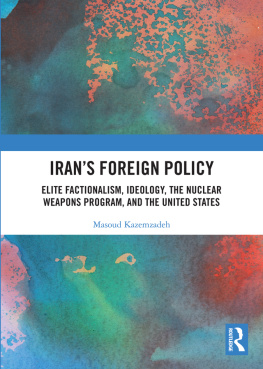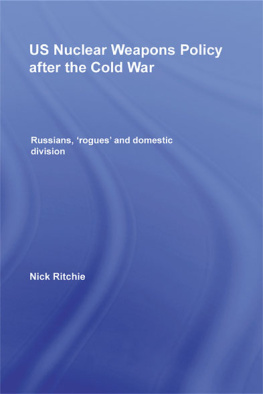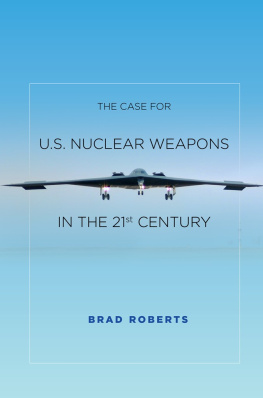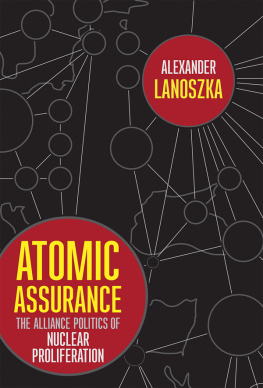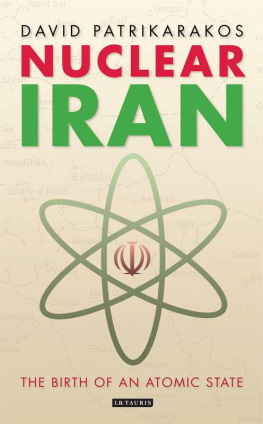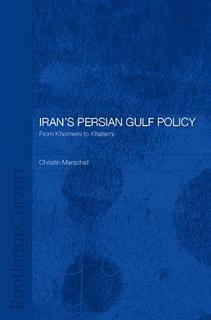Iran's Foreign Policy
This book analyzes both domestic and international factors that have influenced Iran's foreign policy since 1979. It looks not only at the perspectives of the ruling elite, but also of civil society and opposition groups. Furthermore, it also analyzes the interactions among Iran's policies and those of regional and global powers.
Since the 1979 revolution, Iran's foreign policy has appeared both threatening and puzzling. Some have described it as ideological, whereby the regime has been attempting to export its Islamist rule to neighboring countries and challenging the international order. Others consider Iran's foreign policy to be primarily pragmatic, concerned with survival of the regime and expanding its power not unlike other powers in the system. This book attempts to go deeper than most conventional analyses. It demystifies Iran's foreign policy by describing, in great detail, foreign policy decision making in Iran. Iran is not a one-man dictatorship. Rather, it is rule by an oligarchy of Shia fundamentalists. The regime's ideology has not been cohesive, nor has it remained consistent in the past 41 years, nor all members of the ruling oligarchy have articulated an identical version of it. The book describes foreign policies of various factions and their leading figures as well as analyzing their evolutions since 1979. It explains how various intra-elite configurations of power have influenced the regime's foreign policy regarding the nuclear weapons program and the relations with the U.S.
Iran's Foreign Policy: Elite Factionalism, Ideology, the Nuclear Weapons Program, and the United States adds fresh and critical perspectives on scholarly and policy debates on Iran's foreign policy.
The chapters in this book were originally published in the following journals: Comparative Strategy, American Foreign Policy Interests, and the Terrorism Law Report.
Masoud Kazemzadeh is Associate Professor, Department of Political Science, Sam Houston State University, Huntsville, USA. He received his BA in international relations from the University of Minnesota, USA, and his MA and PhD in political science from the University of Southern California, Los Angeles, USA. He was a postdoctoral fellow at Harvard University's Center for Middle Eastern Studies.
Irans Foreign Policy
Elite Factionalism, Ideology, the Nuclear Weapons Program, and the United States
MasoudKazemzadeh
First published 2020
by Routledge
2 Park Square, Milton Park, Abingdon, Oxon, OX14 4RN
and by Routledge
52 Vanderbilt Avenue, New York, NY 10017
Routledge is an imprint of the Taylor & Francis Group, an informa business
2020 Taylor & Francis
Chapter 3 2020 National Committee on American Foreign Policy
Chapter 4 2020 National Committee on American Foreign Policy
All rights reserved. No part of this book may be reprinted or reproduced or utilised in any form or by any electronic, mechanical, or other means, now known or hereafter invented, including photocopying and recording, or in any information storage or retrieval system, without permission in writing from the publishers.
Trademark notice: Product or corporate names may be trademarks or registered trademarks, and are used only for identification and explanation without intent to infringe.
British Library Cataloguing-in-Publication Data
A catalogue record for this book is available from the British Library
ISBN13: 978-0-367-49545-9
Typeset in Minion Pro
by codeMantra
Publishers Note
The publisher accepts responsibility for any inconsistencies that may have arisen during the conversion of this book from journal articles to book chapters, namely the inclusion of journal terminology.
Disclaimer
Every effort has been made to contact copyright holders for their permission to reprint material in this book. The publishers would be grateful to hear from any copyright holder who is not here acknowledged and will undertake to rectify any errors or omissions in future editions of this book.
For Penny, my partner in crime, with love.
The chapters in this book were originally published in Comparative Strategy and American Foreign Policy Interests. When citing this material, please use the original page numbering for each article, as follows:
Chapter 1
Foreign policy decision making in Iran and the nuclear program
Masoud Kazemzadeh
Comparative Strategy, volume 36, issue 3 (2017) pp. 198-214
Chapter 2
Ayatollah Khamenei's Foreign Policy Orientation
Masoud Kazemzadeh
Comparative Strategy, volume 32, issue 5 (2013) pp. 443-458
Chapter 3
Hassan Rouhani's Election and Its Consequences for American Foreign Policy
Masoud Kazemzadeh
American Foreign Policy Interests, volume 36, issue 2 (2014) pp. 127-137
Chapter 4
The Perils and Costs of a Grand Bargain with the Islamic Republic of Iran
Masoud Kazemzadeh
American Foreign Policy Interests, volume 29, issue 5 (2007) pp. 301-327
Chapter 5
The sources of the Middle East's crises and American grand strategy
Masoud Kazemzadeh
Comparative Strategy, volume 37, issue 1 (2018) pp. 56-72
Chapter 6
U.S.-Iran Confrontation in thePostNIE World: An Analysis of Alternative Policy Options
Masoud Kazemzadeh
Comparative Strategy, volume 28, issue 1 (2009) pp. 37-59
For any permission-related enquiries please visit:
http://www.tandfonline.com/page/help/permissions
This book is the fruit of a research project that began in 2004, when I was at Utah Valley University. I thank my former department chair and friend, Dr. Keith Snedegar, who provided class releases so that I could conduct the basic research. I also thank my former Dean and friend, Dr. William Cobb, for the generous Dean's Scholarship so that I could afford to do so.
I have published the results of my research in a number of scholarly journals. All the chapters in this book have been previously published at Comparative Strategy, American Foreign Policy Interests, and Terrorism Law Report.
I thank Dr. Steve Lambakis for kindly granting permission to republish four of my articles. They are as follows:
Chapter 1: "Foreign Policy Decision Making in Iran and the Nuclear Program." Comparative Strategy (2017), 36 (3): 198-214.
Chapter 2: "Ayatollah Khamenei's Foreign Policy Orientation." Comparative Strategy (2013), 32 (5): 443-458.
Chapter 5: "The Sources of the Middle East s Crises and American Grand Strategy. Comparative Strategy (2018), 37 (1): 56-72.
Chapter 6: "U.S.-Iran Confrontation in the Post-NIE World: An Analysis of Alternative Policy Options." Comparative Strategy (2009), 28 (1): 37-59.
I thank Dr. George Schwab, Ambassador Susan Elliott, and Stephen Whittaker at the National Committee on American Foreign Policy and the American Foreign Policy Interests for kindly granting me permission to republish the following:
Chapter 3: "Hassan Rouhani's Election and its Consequences for American Foreign Policy." American Foreign Policy Interests (2014), 36 (2): 127-137.

